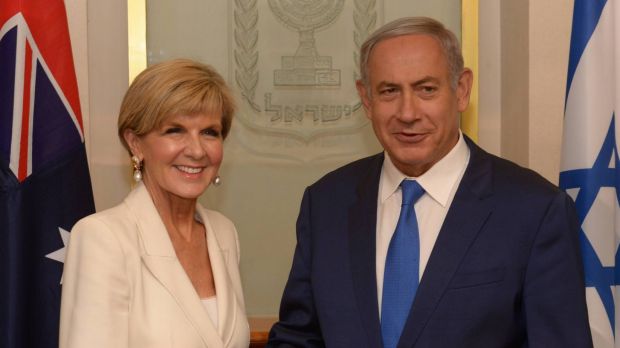Foreign Minister Julie Bishop has invited the Israeli Prime Minister Benjamin Netanyahu to visit Australia because of “our absolute and enduring commitment to the State of Israel and our friendship”.
It could be argued that principles of freedom of speech justify the invitation. If that’s the case, Palestinian leaders should also be visiting this country.
A second issue concerns the preparation of questions for the Israeli Prime Minister about international law and human rights. Such questions should not be deflected by the inevitable and diplomatically safer discussion about innovation and cyber security.
The siege of Gaza is an amorality play on an international scale. Blame can be laid on Israel but also on Hamas, the Palestinian Authority, Egypt, other Arab countries and the international community.
The UN has reported that by 2020 Gaza will be unfit for human habitation.
Australian journalists should also be ready to cross-examine the Israeli Prime Minister in relation to the latest illegal expansion of Israeli settlements.
Desperate to obtain President Trump’s support for his – Netanyahu’s – building of settlements, the Israeli Prime Minister said he supported the President’s plans to build a wall on the Mexican border. Netanyahu tweeted that he was in favour of walls: “I built a wall along Israel’s southern border. It stopped all illegal immigration. Great success. Great idea.”
Since Trump’s inauguration, Netanyahu has announced the approval of 6000 more housing units in the occupied Palestinian territories in East Jerusalem and the West Bank. He thumbs his nose at the UN, at world opinion, at international law.
In these respects he could expect Australian support. In a meeting with the President of Israel, Reuven Rivlin, Julie Bishop confirmed Australia’s commitment to taking a pro-Israeli stance in international forums where, in Bishop’s words, “obviously biased, discriminatory and unfair resolutions are put forward”.
Read the full article by Stuart Rees at the Sydney Morning Herald.

